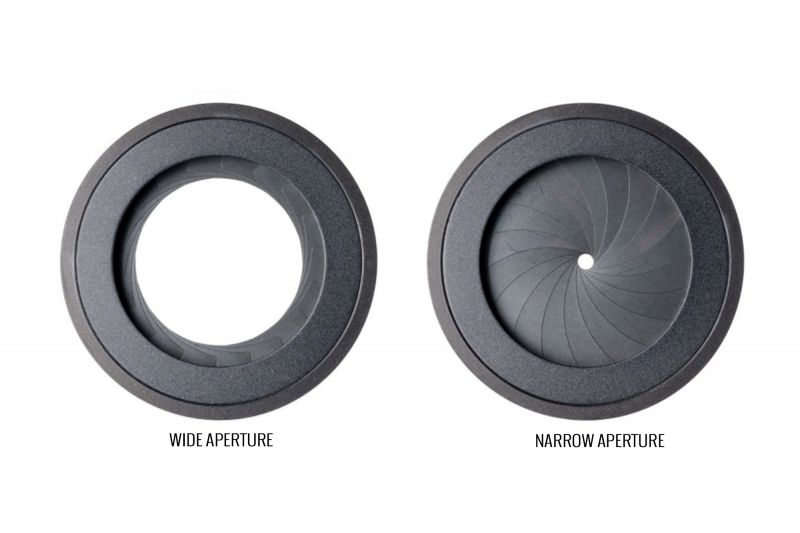-
Term:
Description: A circular polarizing filter is a photographic filter that is attached to a lens in order to cut down glare and reflections as well as darken a blue sky. Polarizers work by stopping light from passing through the lens randomly from any wave angle, and only allowing one polarized wavelength of light to pass through. Rotating a circular polarizer broadens or narrows the angle of "acceptable" light, effectively turning "off" or "on" the polarization effect on reflections and other shiny surfaces. Circular polarizing filters are often used in landscape and product photography, but can also be useful in any application where glare or reflections are a concern.
Circular Polarizer Filter
How A Circular Polarizer Works

A circular polarizing filter can do amazing things for both outdoor and indoor photographers, whether the subject is the natural world or something entirely man-made. The reason for this is how a polarizer works, and how light itself works at an atomic level.
A reflection is created by waves of light that are polarized in mostly one linear direction, instead of the infinitely random angles that light waves can travel travel at. A polarizing filter, because of its atomic structure, only allows light from one single polarization (angle) to pass through it, and if that angle does not match the angle of the reflected light, it is partially or almost fully blocked. (Being only faintly blocked if it is nearly the same angle, and nearly all blocked if the angle of polarization is 90 degrees different from the angle of the polarized light.

Circular Polarization versus Linear Polarization
In photography, a linear polarizer and circular polarizer have the same exact effect on your image, when they are both used at the correct angle for maximum polarization. However a circular polarizer filter also includes a second layer of material called a quarter-wave plate, which takes the linearly polarized light from the polarizing layer, and turns it into circularly polarized light.
This is necessary on most modern cameras because both autofocus and metering can utterly fail if they receive linearly polarized light.

Related Articles to Circular Polarizer Filter Definition
10 Tips For Better Seascape and Beach Landscape Photography
If you live near a coastline or beach, then seascape photography can be both rewarding and beautiful. Here are some tips and imagery to get you started, or help elevate your imagery to the next level!
10 Tips for Better Water Reflection Photography
This is one technique you should absolutely keep in your toolbox to boost your creativity.
My 5 Biggest Mistakes in Automotive Photography & How To Avoid Them
With any craft, it’s important to continually learn from situations and errors we make. I thought I would share some of my personal stumbling blocks to help others along the way as they try their hand with automotive photography.
Should Wedding Photographers Be Using Circular Polarizers Too?
The benefits of a polarizing filter reach further than just for landscape photographers
Polarizing Filter Demonstration & Explanation
Before the trend of #nofilter, or even before Instagram for that matter, photographers used all manner of filters to control…
Creating Art with a Camera – Interview with Nature and Cultural Photographer Art Wolfe
Having published almost 90 books and videos teaching photography technique, his images on two U.S. Postage stamps, and hosted his own television series, renowned photographer, Art Wolfe has quite a few accomplishments under his belt in a career that has spanned over three decades.
The 2012 Venus Transit HDR – How We Shot It
About a year ago, the planet Venus passed directly between the Earth and the Sun, an event which will not happen again until the year 2117. (Hopefully by then, we’ll be referring to it as “stardate 2-1-1-7” right?)




Get Connected!